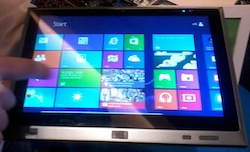Not much difference between airline passengers and a bag of potatoes
business model, consumer electronics, mobile, mobile commerce, travel, WiFi, wireless opportunities

This is your captain speaking.
Good news from Boeing, just in time for the holiday flying madness. With the growing popularity of on-board WiFi, engineers there needed to figure out how it propagates in an airline cabin.
There’s no mathematical model for predicting what happens to WiFi signals when you have a few hundred people packed together inside of a metal tube. So they came up with a testing protocol.
Boeing is proud of the fact that it only requires about ten hours to complete the series of tests.… More

